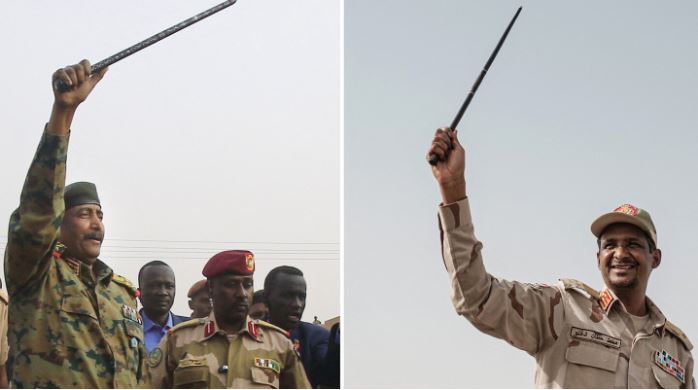US-brokered talks in Switzerland aimed at ending Sudan’s civil war collapsed after efforts to persuade the army to attend failed, while a bid to deliver food to millions of people who are facing famine was stymied by the closure of a major border crossing, Bloomberg reported on Friday.
The U.S. mission to Geneva announced at the end of the 10-day talks that progress had been made in securing commitments to increase access to humanitarian aid but lamented the absence of the Sudanese Armed Forces.
“Though we were in consistent communication with SAF virtually, we regret their decision not to be present,” it said in a joint statement with other mediating parties on Friday. “We believe that limited our ability to make more substantial progress towards key issues, particularly a national cessation of hostilities.”
Mediators were left frustrated by the army’s demands to be recognized as Sudan’s official government. The Rapid Support Forces paramilitary group, which has been fighting the military since April last year, did send representatives to the talks, as did the United Arab Emirates, Switzerland, Saudi Arabia, Egypt, the African Union and the United Nations.
A final push for a deal was made this week when Tom Perriello, the U.S. Special Envoy for Sudan, traveled to Cairo, where U.S. Secretary of State Antony Blinken held talks with Egyptian President Abdel-Fattah El-Sisi that mainly focused on the war in Gaza.
The Sudanese army sent low-ranking officials rather than senior military officers from its main headquarters in Port Sudan to parallel talks on the North African nation’s civil war, which also went nowhere, according to three people who were briefed on the matter and spoke on condition of anonymity because they aren’t authorized to speak publicly.
“The Egyptian government had also scheduled a meeting with a delegation from Port Sudan, but we were told that would be stood down after the delegation breached protocols,” Perriello said in a posting on the social media platform X on Wednesday.
In a statement on Wednesday, Sudan’s Transitional Sovereignty Council, which is run by the army, said the fact that it had sent a delegation to Cairo confirms “our seriousness and sincere desire to continue” peace talks.
Adding to the mediators’ exasperation, a major border crossing between Sudan and Chad that is a main transit point for aid was shut again on Thursday, despite the army agreeing to open it a week ago.
“As of today, no trucks have moved,” said Eddie Rowe, the U.N. humanitarian coordinator in Sudan, said on Thursday. The U.N. is now in talks with the Sudanese government on clearance procedures with the hope of bolstering deliveries, he said.
The World Food Programme delivered 155 tons of assistance through the Adre crossing over the past week, enough for about 13,000 people. A panel of Rome-based hunger experts has warned that half of Sudan’s population is confronting a food crisis, while the World Health Organization said there had been cholera outbreaks in several states.
A famine was officially declared this month at the Zamzam camp in the western Darfur region. Last week, aid agency Doctors Without Borders said that intense fighting in the nearby town of El-Fasher was leading to new arrivals at the camp and the Saudi hospital in the city had been shelled 11 times since May 10.
The U.N. has described the situation in Sudan, which had a population of about 46 million prior to the war, as the world’s biggest displacement crisis.
Officials are now looking at the U.N. General Assembly, which begins on September 10, as the next opportunity to bring the warring parties together, according to the people who were briefed on the talks.




